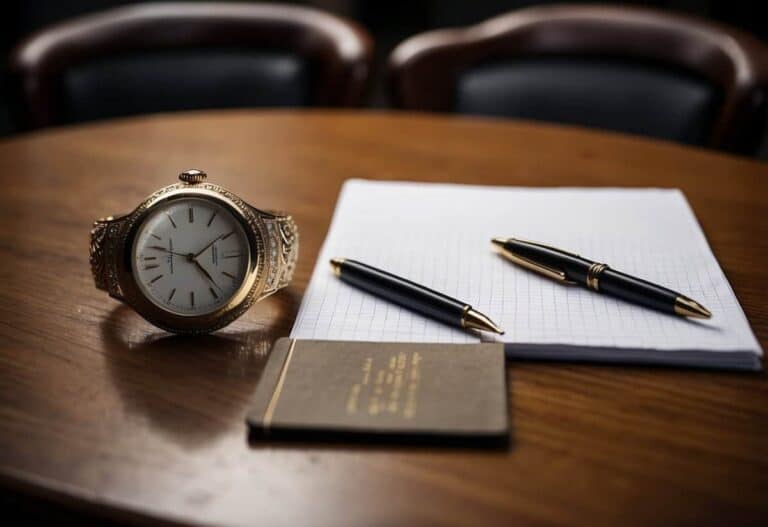Is 2 Years Too Long to Plan a Wedding? Tips for a Smooth Process
You’re engaged and now the big question pops up: Is two years too long to plan a wedding? While it might seem like a lengthy timeframe, many couples find that it offers plenty of benefits. Taking two years to plan can reduce stress, allow for budgeting, and give you a better chance to secure your favorite vendors and venue. This is especially true if you have a specific date or place in mind.
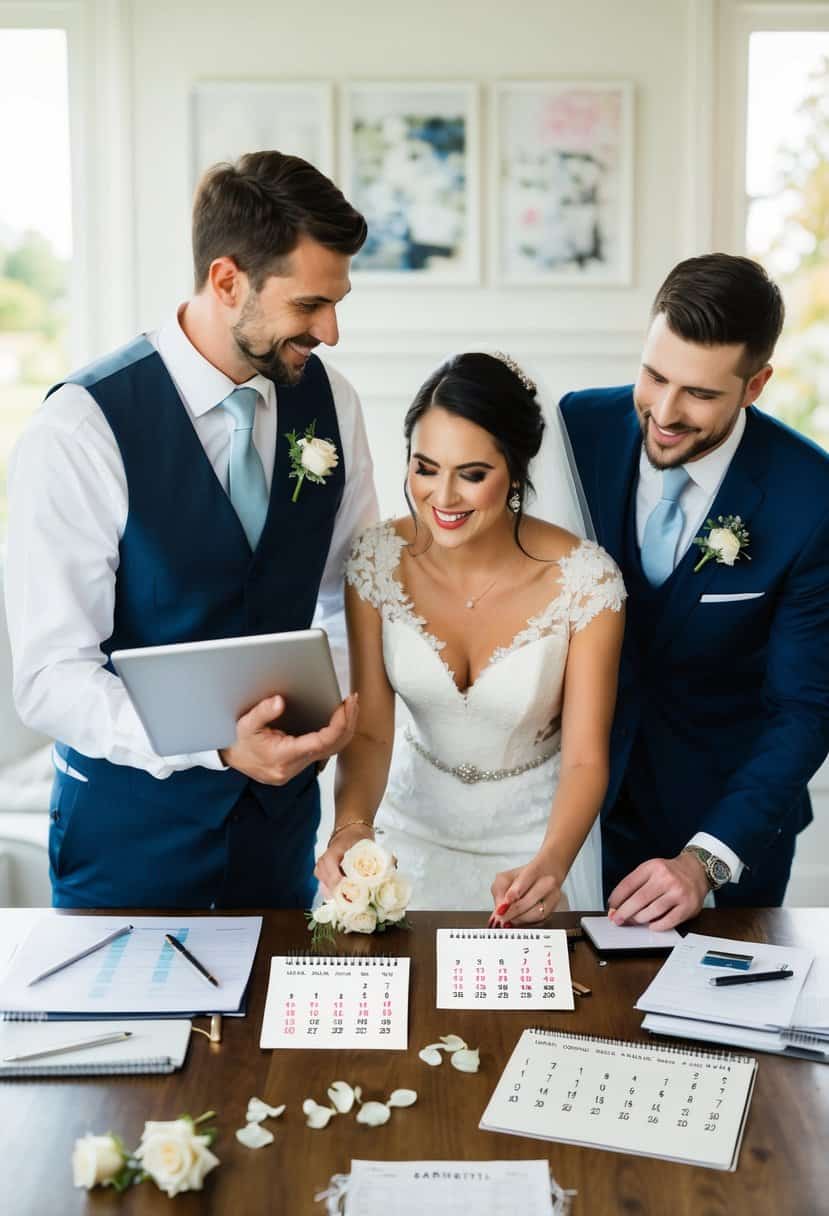
In the planning process, having a long engagement means you have the luxury of time to explore different ideas and options at your own pace. Couples often spend the first year saving up and dreaming about possibilities before diving into the nitty-gritty of booking and finalizing details. This relaxed pace can make the journey enjoyable and less pressured.
Some people worry that a long engagement might lead to a lull in excitement, but with some creativity, you can keep the momentum going. From engagement parties to pre-wedding outings, there are plenty of ways to celebrate along the way. Starting early also gives you room to make thoughtful decisions, ensuring your wedding day is exactly as you envision.
Deciding the Length of Your Engagement

When deciding how long your engagement should be, there are several factors to consider. Both long and short engagements have their advantages and challenges, and it’s important to find the best fit for you and your partner.
The Pros and Cons of a Long Engagement
A long engagement often allows more time to plan the perfect wedding. You have the opportunity to save money, find the right venue, and book your preferred vendors. This can reduce the stress of rushing into decisions and increase the enjoyment of the planning process.
On the downside, a longer engagement might stretch out the excitement and make it feel less special over time. You might experience pressure from family or friends to hurry the process. Plus, life plans might change, which could lead to adjustments.
A lengthy engagement may also provide time for a memorable engagement party. It gives friends and family a chance to celebrate with you before the main event.
Comparing Long and Short Engagements
A short engagement often brings about excitement and a sense of immediacy. It encourages you to make decisions quickly and focus on what matters most. This can add an element of fun and spontaneity to the planning process and keep the excitement high.
However, a short engagement might limit venue options and vendor availability. This time constraint can create stress and make it harder to manage the details. It’s crucial to have good organizational skills or flexibility in your choices.
If you are eager to tie the knot, a short engagement may be the perfect fit. It may also work well if you prefer a smaller, more intimate wedding with fewer elements to coordinate.
The Wedding Planning Timeline
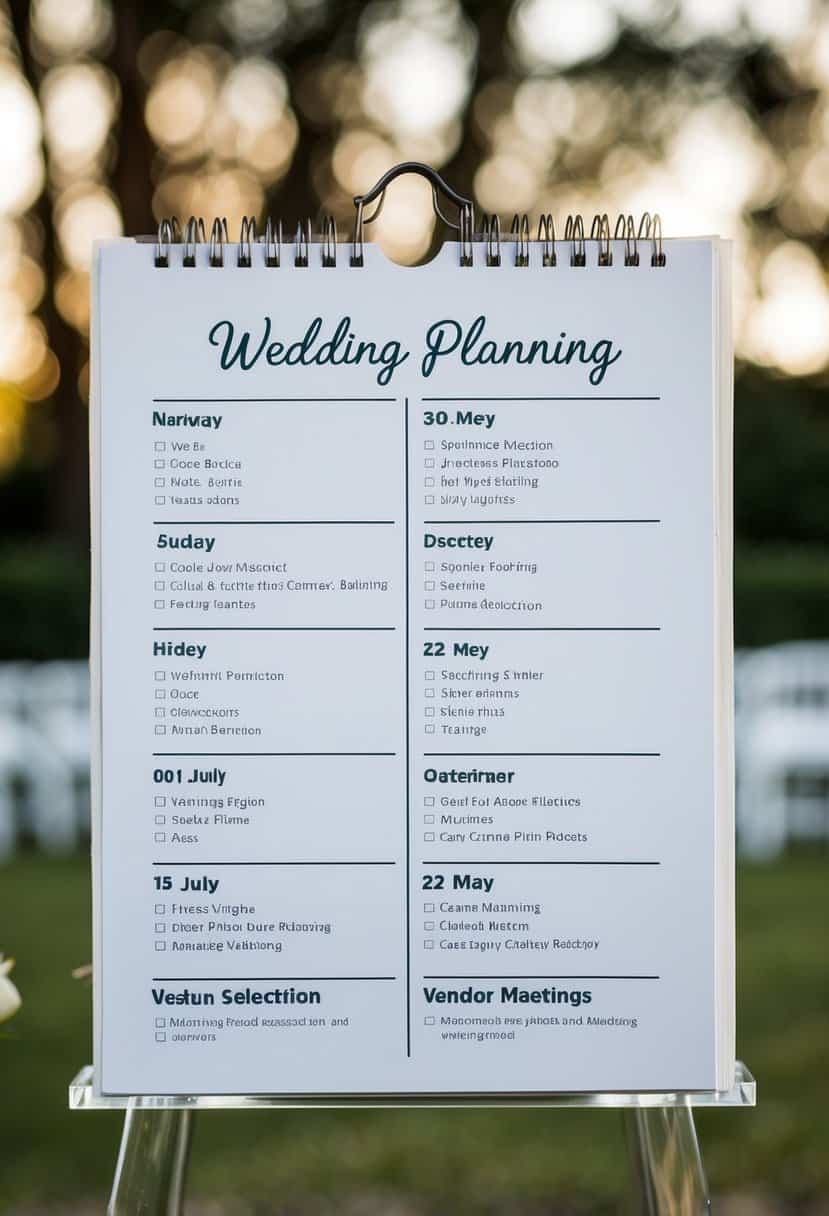
Planning a wedding can span several months. To keep everything organized, it’s helpful to know when to hit key milestones, book your venue, and send save-the-dates and invitations. Here’s how to navigate these crucial steps.
Key Milestones and Deadlines
Organizing a wedding involves hitting certain milestones. Start by setting a budget and assembling a guest list. These tasks should be accomplished around 18-24 months before the big day. Choose a date and begin browsing venues within this timeframe as well.
From 12-15 months out, focus on booking major vendors like photographers and caterers. Around 10 months prior to your event, consider dress shopping. Ensure you’re checking off these milestones to keep stress at bay.
When to Book Your Venue
Booking your venue early is vital. Ideally, this should be done 12 to 18 months before your wedding day. Popular venues can book up quickly, so prioritize this task once you’ve set your budget and guest list.
When visiting venues, consider travel logistics for guests and accommodation options. Discuss available dates and services they offer. Locking in your venue early provides a solid foundation for other planning activities.
Sending Save-the-Dates and Invitations
Save-the-dates should be sent 6 to 8 months before your wedding. This gives guests ample time to make travel arrangements, especially if you’re hosting a destination wedding. Keep the information simple but include key details like the date and location.
Wedding invitations are typically mailed out 6 to 8 weeks before the wedding day. This timeline ensures that guests have all the necessary information well in advance. Be sure to include RSVP details to confirm attendance numbers.
Budgeting and Organizing Your Resources
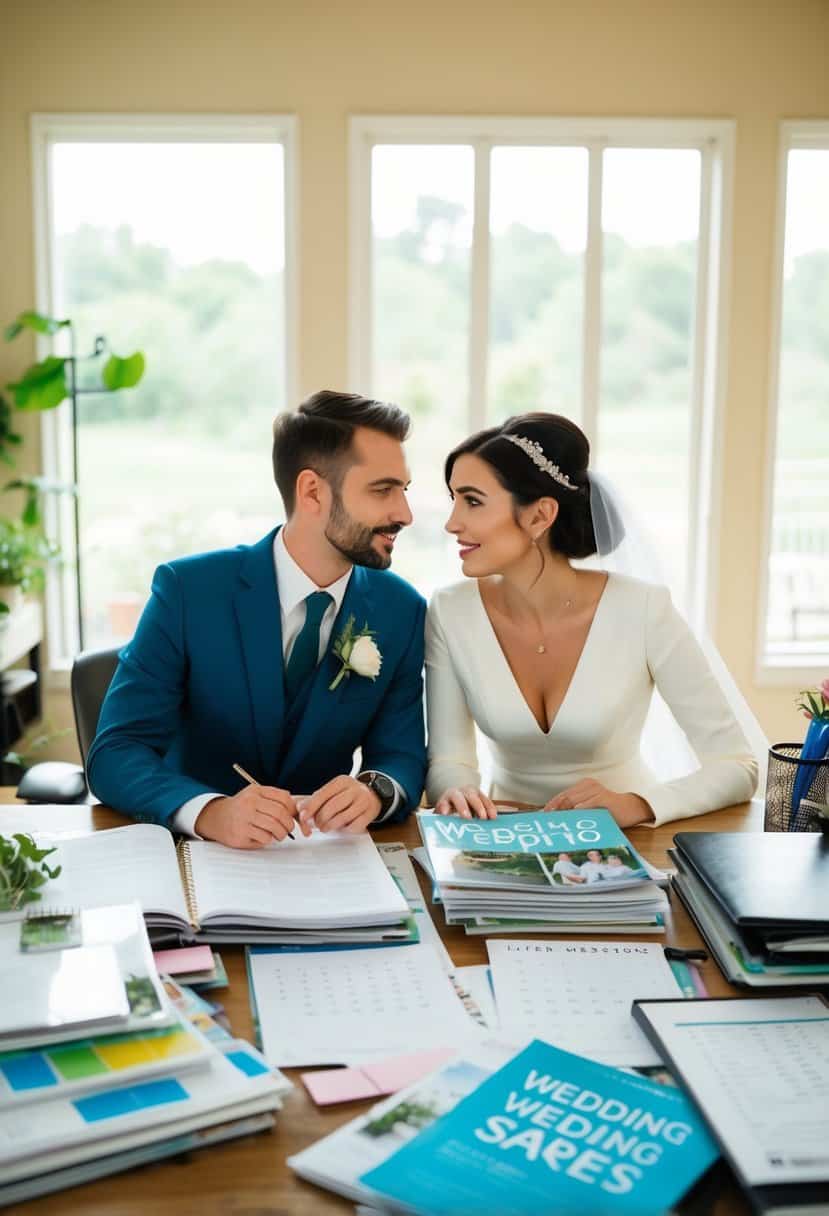
Planning a wedding involves many details, from setting up a budget to choosing the right help along the way. Managing your funds wisely and selecting suitable services can make the entire process smoother and more enjoyable.
Creating and Sticking to a Wedding Budget
Starting with a clear wedding budget helps you keep track of your spending. List all the major expenses, such as venue, catering, attire, and decorations. Remember to include small costs like invitations and favors.
Use a spreadsheet or budgeting app to organize your finances. Assign specific amounts for each category, and try to prioritize what matters most. By doing this, you’ll find it easier to resist spontaneous purchases that may push you over budget.
Choosing the Right Vendors
Picking the right wedding vendors is crucial for top-notch services on your big day. Begin by researching options in your area. Look for reviews and recommendations from friends or family.
Once you narrow down your choices, contact the vendors to discuss their offerings and prices. Consider visiting them in person to get a feel for their services. Clear communication about your expectations will help ensure everything goes as planned.
Opting for a Wedding Planner or Coordinator
Deciding whether to hire a wedding planner or coordinator can impact your peace of mind. A wedding planner helps you with planning, while a coordinator mainly handles tasks on the big day. Assess what level of assistance you need.
A planner can be beneficial for busy individuals who want to make sure nothing is overlooked. On the other hand, a coordinator can step in to oversee the final details and ensure smooth execution. Weigh the pros and cons before deciding.
Selecting the Perfect Venue and Theme
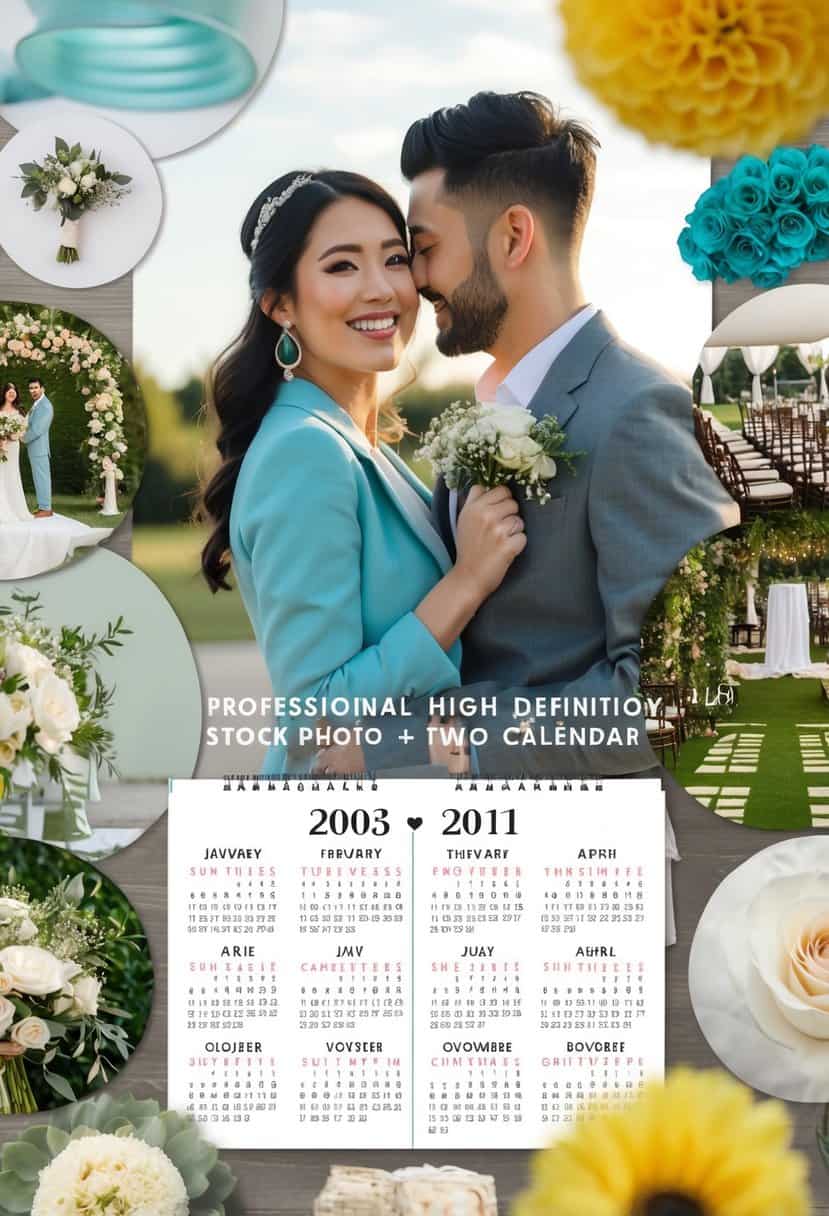
Choosing the right wedding venue and theme is crucial for setting the stage for your big day. It’s important to consider the location, style, and atmosphere that will best reflect your vision and make for a memorable experience for both you and your guests.
Destination Weddings: Dreamy or Dreary?
A destination wedding can be a dream come true. It offers a beautiful location and often includes stunning scenery and unique venues. Tropical beaches and historic cities are popular choices. Yet, consider the logistics involved. Long-distance planning can be challenging, and travel costs might limit your guest list. To ensure your dream doesn’t become a hassle, work closely with local planners. They can navigate the complexities, helping coordinate everything from accommodation to legal requirements.
Keep in mind the impact on your guests. Consider if they need visas or vaccinations. Communication is key to keeping everyone informed and excited about the journey. A destination wedding should reflect your style and interests while considering your guests’ needs.
Establishing Your Wedding Atmosphere
Your wedding theme sets the tone for the entire event. It influences everything from attire to decor. Consider what you want your wedding to say about you. Whether it’s a classic romantic theme or a rustic-chic vibe, consistency in design elements is vital.
Pay attention to the invitations, colors, and even the wedding venue itself, as they all contribute to the atmosphere. For outdoor settings, have a backup plan in case of weather changes. This ensures the celebration goes smoothly, no matter what. Personalized touches, like customized centerpieces or memory displays, can make the experience more meaningful and tailored to your story.
Finalizing the Details

As you plan your wedding, it’s crucial to nail down specifics that will make the day special. Focus on the guest list, find the perfect wedding dress, and add those personal touches like vows and favors.
The Guest List and Seating Arrangements
Planning your guest list can feel like a big puzzle. You’ll need to think about the number of people you and your partner want to invite, along with families and friends. Keeping a balance is important to ensure an enjoyable experience for everyone.
Create a spreadsheet to keep track of names, RSVP statuses, and meal preferences. This helps to organize seating arrangements, making sure family and friends are seated comfortably together.
For seating arrangements, consider the relationships and dynamics among your guests. It’s not just about filling tables; it’s also about creating a friendly, welcoming atmosphere for everyone to relax and enjoy the celebration.
Dress to Impress: Finding Your Wedding Dress
Choosing a wedding dress can be both exciting and overwhelming. Start early, giving yourself plenty of time to explore different styles and designs.
Your dress should reflect your personality and comfort while aligning with the wedding’s theme. Visit multiple boutiques to try on various gowns, as seeing how different styles look can guide you to the right choice.
Keep in mind other accessories like veils, shoes, and jewelry. Ensure they complement and enhance the beauty of your dress, making you feel your best on your big day.
The Finishing Touches: Favors, Vows, and More
Personal touches add warmth to your wedding day. Wedding favors offer a way to thank guests for their presence. They can range from simple candies to personalized items. Choose something that echoes your relationship or a shared interest.
When writing your vows, aim for sincerity and heartfelt expression. This is your chance to speak from the heart about your love and commitment.
You also need to handle other little tasks. These include securing your marriage license and confirming final details with vendors to ensure everything goes smoothly.


